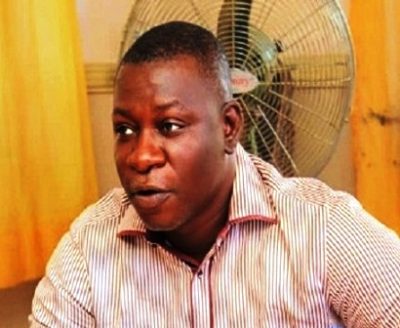Let Fairness and Equity Prevail in the Appointment of the Next Vice Chancellor of Benue State University, Makurdi

Patrick Ukase Ph.D
Dept. of History & Int. Studies Kogi State University
Recently, the Benue State University (BSU), Makurdi commenced the process of selecting a new Vice Chancellor for the twenty-eight years old institution. The new Vice Chancellor will be the sixth since the establishment of the university. At the last count, twenty-seven professors – within and outside the university, vied for the position. There is a sense in which the number of those vying for the position reveals the extent to which the university has grown in the last two and half decades, evident by the reality that more than ninety percent of the contestants out for the contest are from within the institution.
Established by the Rev. Fr. Moses Adasu’s administration in 1992, the university would become the first state-owned university in northern Nigeria with huge potentials, having drawn some of the best brains from within and outside the country. In the more than two and half decades of its existence, the university has become a powerful hub for the generation of knowledge and production of quality manpower, servicing the manpower needs of the public/ private sectors and those of several other tertiary institutions across the country.
Be that as it may, there is need to cautiously advise that the perfidy, clannishness and primordialism that had characterized the selection process of previous vice chancellors of the institution must be jettisoned for merit. For instance, since its establishment, all the previous and the present vice chancellors have emerged from one section of the state, particularly the Tiv axis. Why is this so? Does that suggest that the other sections of state lack quality professors that can lead the university? This, in my opinion, is unhealthy for the growth and development of the institution. Several academics have left the university to ply their trade elsewhere because they have been denied the opportunity to aspire, or have been discriminated against on the basis of where they come from especially in terms of appointment into administrative positions. Ideally, the competence in varsity administration should transcends such retrogressive and destructive tendencies, if we value BSU Makurdi as a generational asset.
Suffice to say that universities in Nigeria have remained unranked globally because of the way and manner we have localized our institutions. What makes a university global is the universality of its activities – both human and otherwise. A university cannot adopt a clannish process in the recruitment of its workforce and in the appointment of the vice chancellor and other management staff, and still expect to be counted among the best. Unfortunately, this has become the stock-in-trade of virtually all universities in the Nigeria, where appointments into teaching and management positions are ethnically and clannishly driven. Universities are citadels of learning and should always attract the best, irrespective of race, colour, language, religion, sex or ethnic affiliation.
One of the greatest nation-building challenges that we face today is how to manage our diversities and also exploit them maximally for greatness. So far, our actions and inactions point to the fact that we are more interested in expanding our fault-lines on a daily basis and even in areas the indulgence is preposterous. While we are quick to condemn President Muhammadu Buhari for his alleged skewed, narrowed or nepotistic appointments, we are seen replicating same within the sub-units and in our various localities. All of all must live long enough to contend with a tomorrow as we bow out of active public service and our actions today, must begin to smoothen the path of a glorified reminiscence of the societies we once expanded our energies’ in service.
We must learn to coexist as people; we must allow merit to govern human affairs and ensure that career is open to talents. Benue State must set the stage for the actualization of equity, fairness, and unity. This is one sure way of achieving greatness. Our forefathers bequeathed these principles and legacies to us and it behooves on everyone to uphold it. Late Senator Joseph Tarka set the stage for minority struggles in northern Nigeria and achieved much success in the process. We must lead by Tarka’s example, because he who goes to equity must do so with clean hands. We must practice what we preach by applying the principle of ya na angbian (Chop and give to your brother). The Tiv people who are the majority in the state and who have been very vocal in condemning the ills in the contraption called Nigeria, must set a good example for others to follow within their own space and strength.
Other ethnic groups in the state equally have very competent academics to man the position of vice chancellor. The position of vice chancellor – like governor (I will write about this soon) should not be seen as the birthright of the Tiv alone. As the Benue State University commences the process of selecting the next vice chancellor, with seven names penciled down after the first test for the contestants, we must recognize the virtues of inclusivity and oneness. We must realize that we are bonded together in ways that can be invisible to naked eyes; we must realize that we can achieve much more by sharing and caring for those around us, irrespective of our numerical strength. We must learn to protect minority and majority rights and act on behalf of peace, progress and development.



